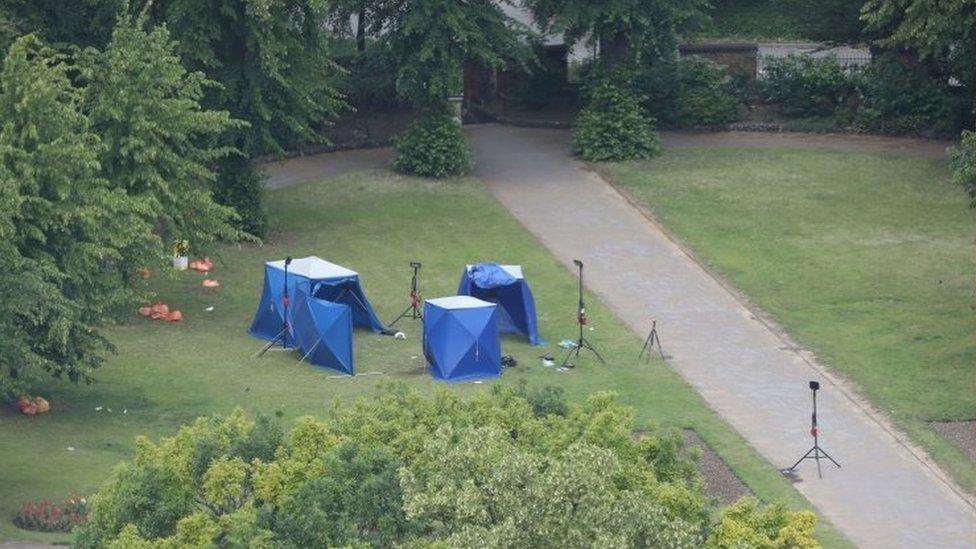Reading stabbings: American Joe Ritchie-Bennett named as victim
- Published
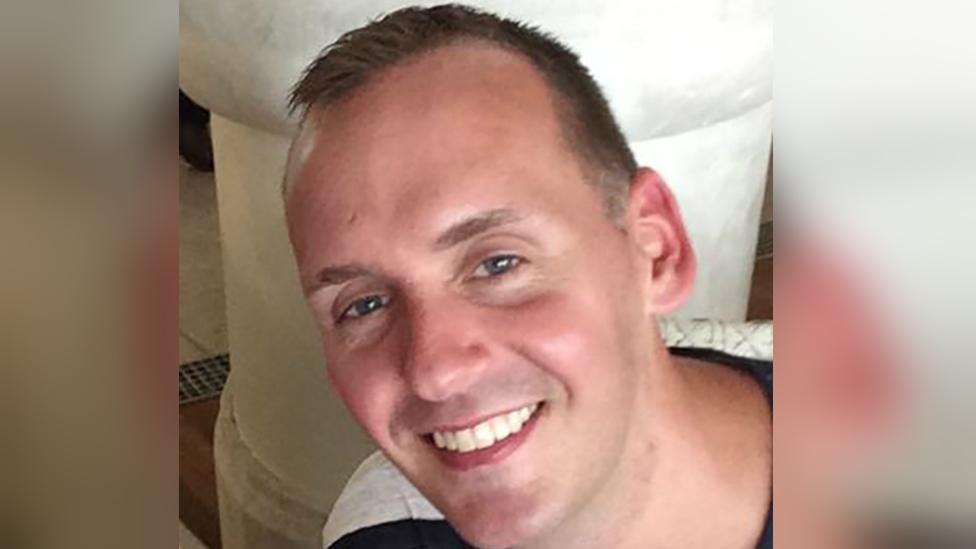
Joe Ritchie-Bennett has been named as the second victim of the stabbings
An American man is the second victim of the Reading stabbings to be named.
Joe Ritchie-Bennett had lived in the UK for 15 years, his father confirmed to US TV network CBS. His friend James Furlong and one other person also died.
Meanwhile, police continue to question the suspect in Saturday's attack, Khairi Saadallah, who has been arrested under the Terrorism Act.
Sources told the BBC he was originally from Libya and came to the attention of MI5 in 2019.
A two-minute silence was held at 10:00 BST for the three victims.
Robert Ritchie told CBS the family was "heartbroken" and described his 39-year-old son, who was originally from Philadelphia, as "brilliant and loving".
US ambassador to the UK Woody Johnson confirmed that an American citizen was killed and condemned the attack.
He said: "I offer my deepest condolences to the families of those killed. To our great sorrow, this includes an American citizen. Our thoughts are with all those affected."
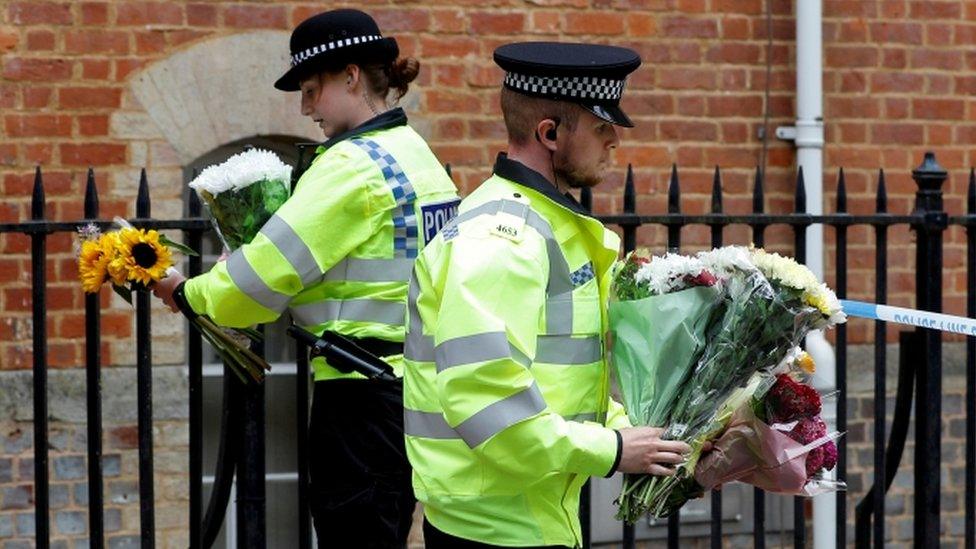
Police officers carry flowers left at the scene of multiple stabbings in Reading
Reading Borough Council leader Jason Brock said the town was "an incredibly strong community" where "people will come together and they won't allow themselves to be divided".
Mr Furlong, 36, was a teacher and head of history, government and politics at The Holt School in Wokingham.
His parents Gary and Janet described their son as "beautiful, intelligent, honest and fun".
"He was the best son, brother, uncle and partner you could wish for. We are thankful for the memories he gave us all," they said in a statement. "We will never forget him and he will live in our hearts forever."
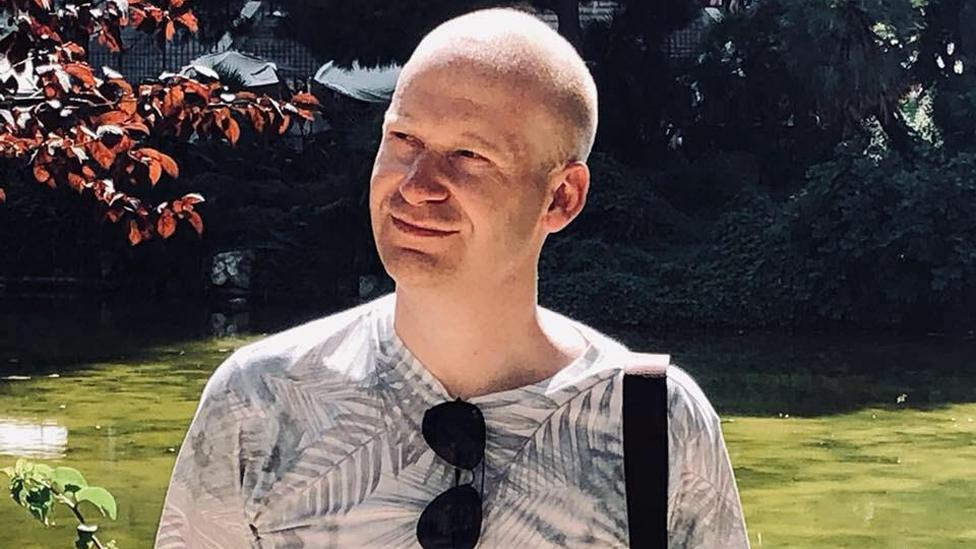
James Furlong was described as an "inspirational" teacher
More than 100 students, some holding hands, gathered at the gates as a bell rang out to mark the start of the silence at the school where Mr Furlong taught, while a flag in the courtyard was lowered to half-mast.
One former pupil, Molly Collins, told BBC Radio 4's Today programme he was a "passionate and enthusiastic" teacher who dedicated extra time to helping students progress.
"I wouldn't have gone to university, I don't think, had I not spoken about it with him. He just really took the time to support me and make me more confident," she said.
In an open letter, former pupils and parents have asked for the school's humanities block to be renamed in Mr Furlong's memory.
Pupils and staff at The Holt School, Wokingham paid tribute to James Furlong
Katya Beaver, 24, who was taught by Mr Furlong in his hometown of Liverpool, described him as a friend as well as a teacher. "He let us call him Jimmy," she said.
Current pupils have also expressed their sadness at the news.
Sophie McEwan wrote on Instagram, external that Mr Furlong was "an inspirational teacher, [who] genuinely cared for all of us students".
While Ella Banbury, 17, said: "He was just a really kind teacher. You would always see him smile - there wouldn't be a time where you wouldn't see him smiling.
"He wasn't just there to teach the subject, he wanted to make sure everyone was OK."
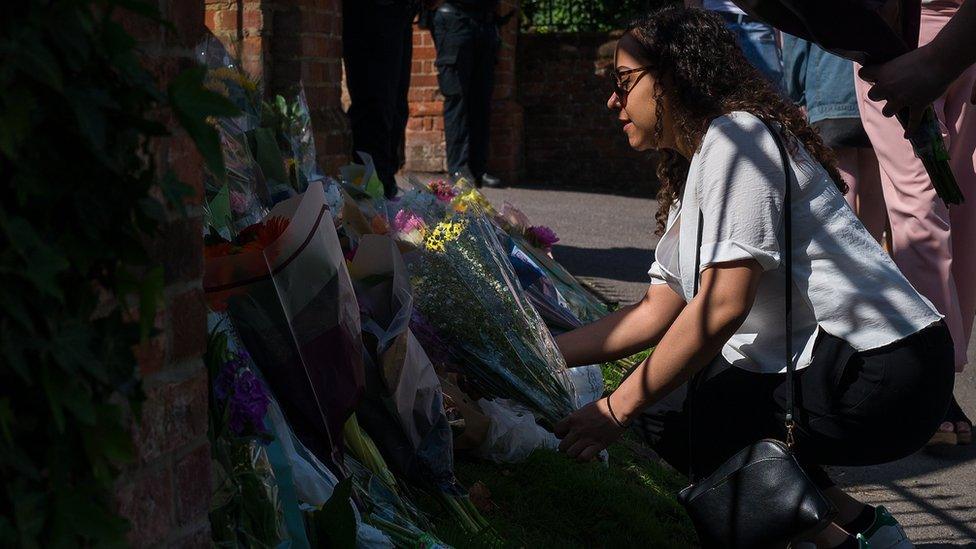
Staff and pupils laid flowers and held a two-minute silence at the school Mr Furlong taught at in Wokingham
Co-head teachers at Mr Furlong's school said he "truly inspired everyone he taught".
Anne Kennedy and Katie Pearce said in a statement: "He was determined that our students would develop a critical awareness of global issues and in doing so, become active citizens and have a voice."
Martin Cooper said he had known Joe Richie-Bennett for four years and Mr Furlong for at least two, having met them at the Blagrave Arms in Reading - a pub where they were regulars.
Mr Cooper, who is chief executive of LGBT+ charity Reading Pride, added that Mr Richie-Bennett and Mr Furlong were "great supporters" and members of the community.
"Their loss is a tragedy to so many people," the 36-year-old from Reading said, adding that they were "fun, engaging and a pleasure to be around".
Mr Furlong and Mr Ritchie-Bennett were two of three people who died in Saturday's attack at Reading's Forbury Gardens, to which police were called at about 19:00 BST.
Witnesses say a lone attacker with a knife shouted "unintelligible words" and stabbed several people who were in a group.
Security guard Sydney McDonald, 65, said he saw the suspect being "rugby-tackled" to the ground by police and arrested shortly after the incident.
"There was a guy and I saw him pointing to a man and saying 'There he is, there he is'. If he hadn't, they would have missed him. He was running really fast, properly fast."
Mr McDonald said the suspect was "all quiet" once he was in the police van and "wasn't putting up a fight".
Three other people suffered serious injuries in the attack, but only one remains in hospital, where his condition is described as stable.
Mr Saadallah, 25, is from Reading and was arrested initially on suspicion of murder. He was later re-arrested on Sunday under Section 41 of the Terrorism Act 2000.
Under the Act, police have the power to detain him without charge for up to 14 days.
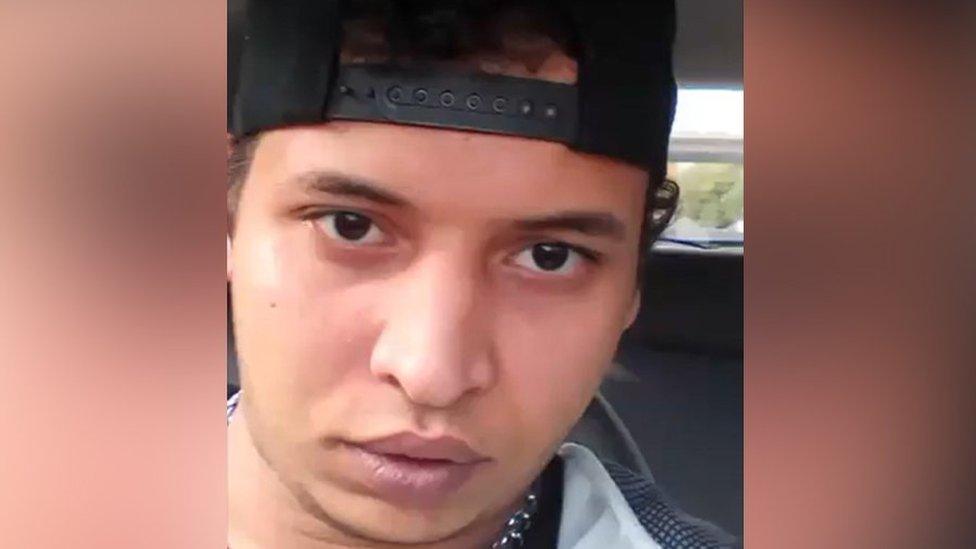
Suspect Khairi Saadallah came to the attention of MI5 last year, sources told the BBC
Police said they are not looking for anyone else in connection with the incident.
Home Secretary Priti Patel told MPs the threat posed by lone attackers "is growing".
She said the UK has "one of the most comprehensive approaches to countering terrorism in the world" and described the threat as "complex, diverse and rapidly changing".
She thanked those who responded to the incident, including student police officers - noting that a "young, unarmed" officer "took down the suspect without hesitation" while another performed first aid.
"These officers are heroes. They showed courage, bravery and selflessness way beyond their years," she said.
Sources told BBC's home affairs correspondent Dominic Casciani that Mr Saadallah came to the attention of the security services after they received information he had aspirations to travel abroad - potentially for terrorism-related reasons.
However, when the information was further investigated no genuine threat or immediate risk was identified, our correspondent said.
It meant that no case file was opened which would have made him a target for further investigation.
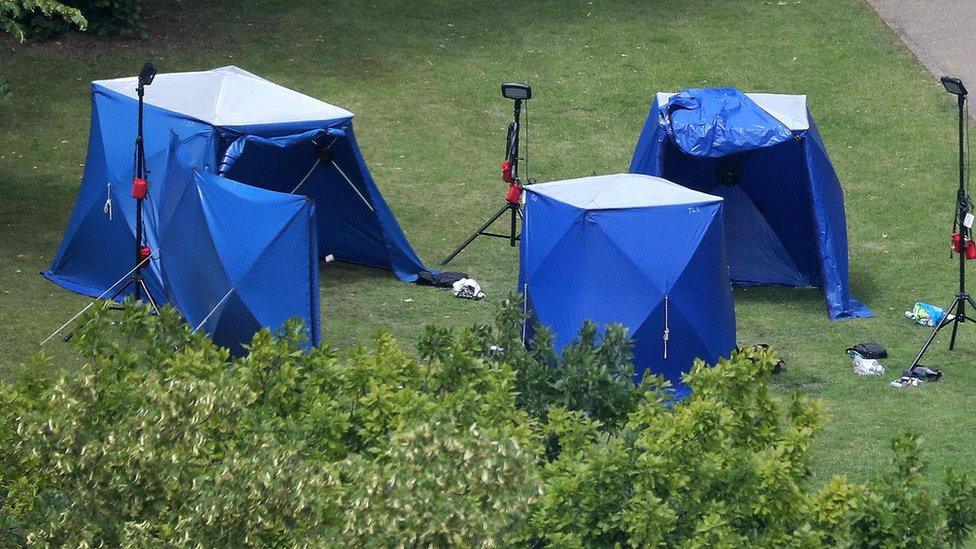
Police tents and equipment at Forbury Gardens in Reading
Sir Mark Rowley, a former national lead for counter-terrorism policing, told the BBC that MI5 has 3,000 people under investigation, but there are 40,000 who have "touched the system" at some point.
He said there were many volatile people who become interested in extremist ideology, but the security services faced a problem in identifying which of those would turn into an attacker.
Priti Patel: We must "learn lessons" from the Reading attack
Labour's shadow home secretary Nick Thomas-Symonds said that with the Ministry of Justice's budget having been cut by 40% over ten years, the government needed to re-examine the resources available for de-radicalisation programmes in prisons, as well as monitoring, supervision and risk assessment of released prisoners.
Prime Minister Boris Johnson has held a meeting with security officials, police and senior ministers.
Labour leader Sir Keir Starmer has said that "people are united in their grief" following the attack, and that he wants to speak to the prime minister to discuss how to "learn from this".
- Published27 June 2020
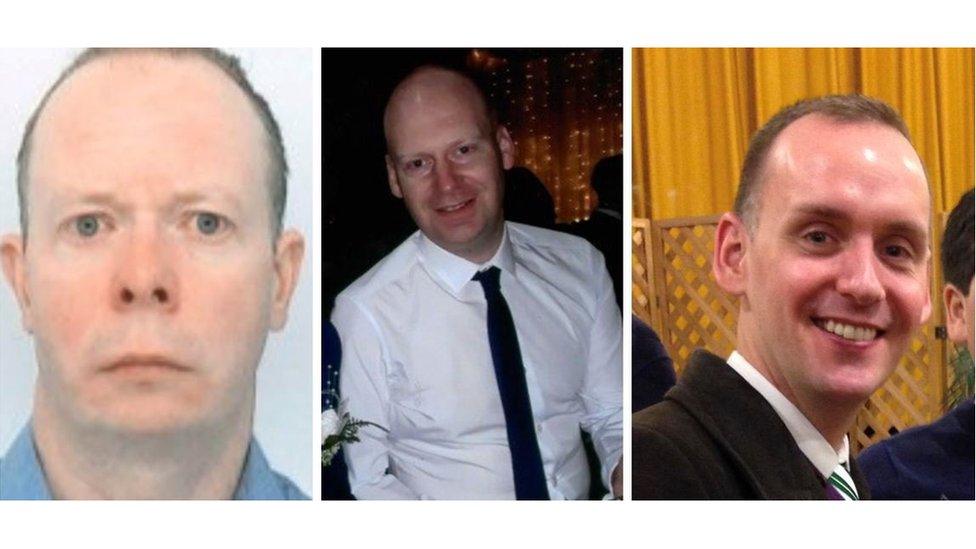
- Published23 June 2020
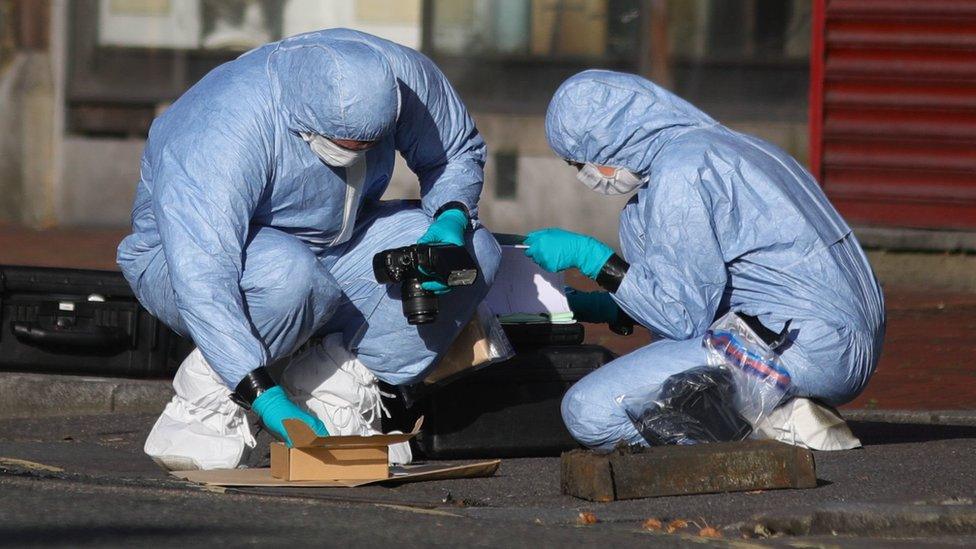
- Published21 June 2020
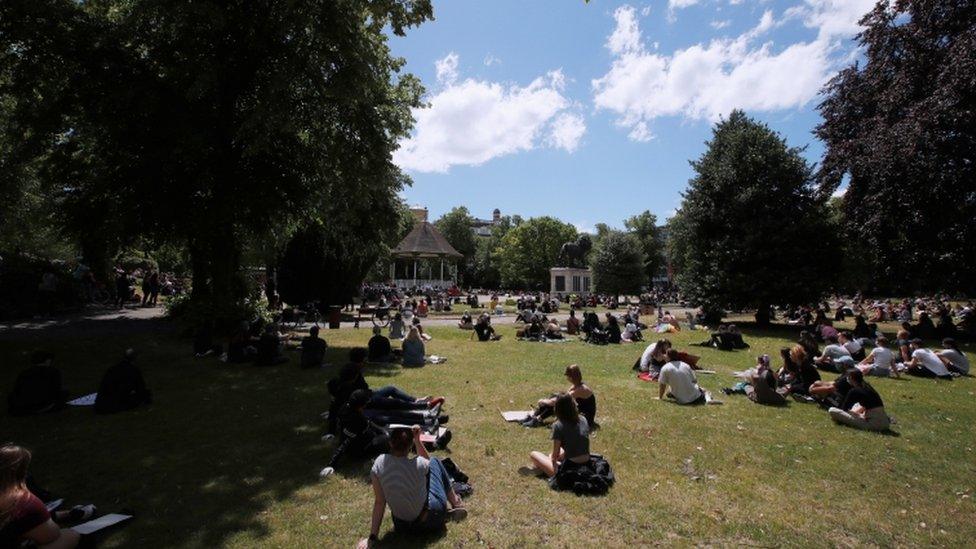
- Published21 June 2020
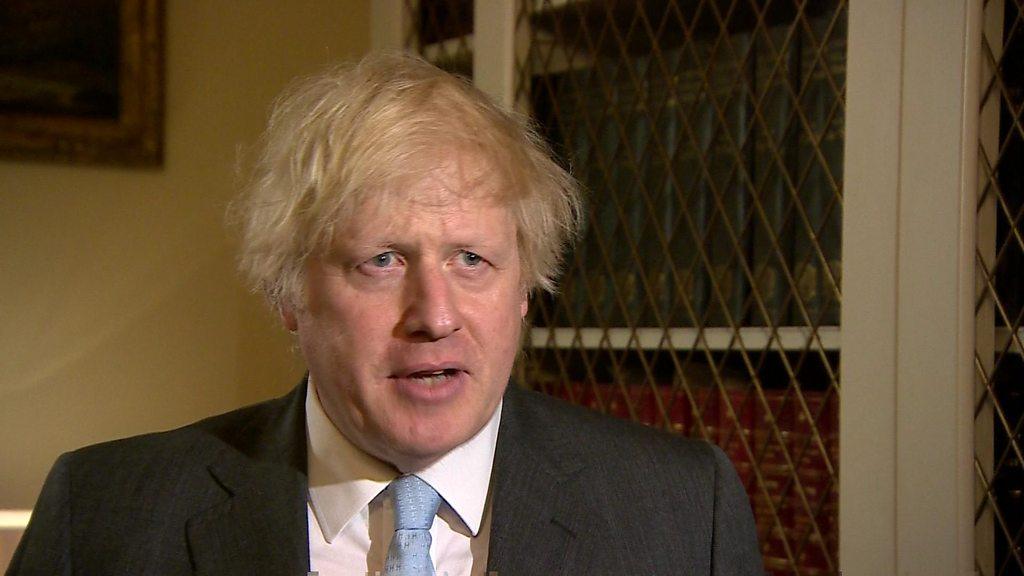
- Published21 June 2020
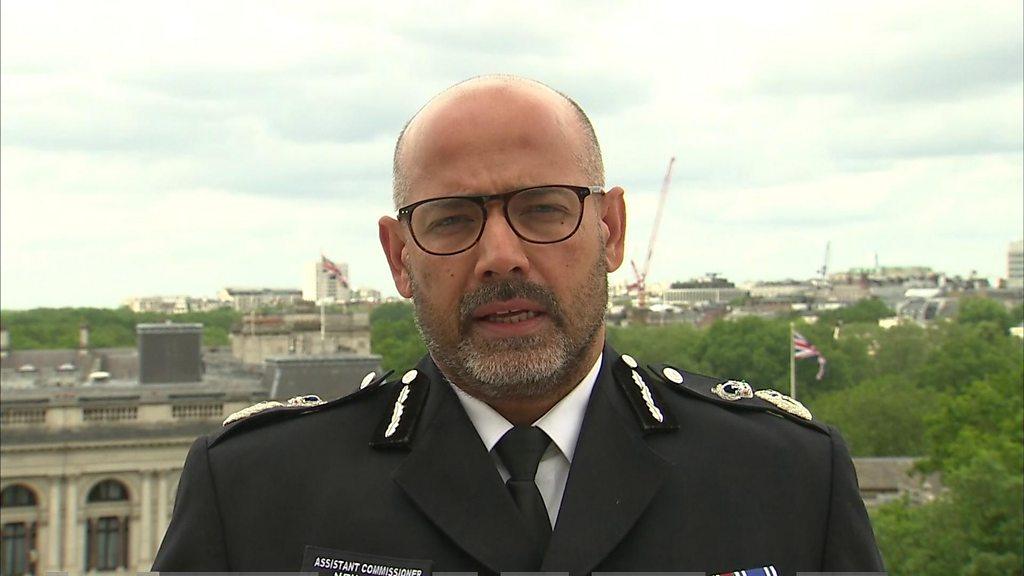
- Published21 June 2020
